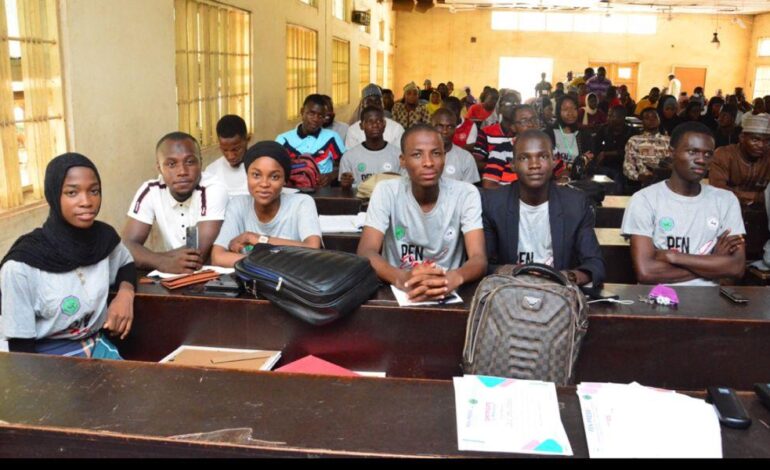It’s becoming worrisome that up-and-coming journalists fall out with their editors because of inconsistent service delivery. In this article, Yusuf Adua, an investigative journalist, contextualised some of the difficulties he and most of his colleagues contend with that oftentimes strain the relationship between editors and promising journalists and suggests possible solutions to the misunderstanding.
The writing flair, nose for in-depth research and passion for stories are required skills for every reporter. More importantly, what every reporter can do on the field, in most cases is more than the academic qualifications they have. However, we still bag the academic certifications exquisitely like lines in award-winning poetries.
Upon graduation, we found out that what we learned in the lecture rooms is an extent diametrically opposite to the realities of the profession. We sought freelancing and volunteering opportunities in print and online platforms, while we pushed for punditry and news analysis volunteering in the broadcast industry. All of these come with little or no pay. Even though we are required to put in the utmost dedication and resilience like the paid staff, we have an infinitesimal financial reward for our hard work and struggle to see our mates in other walks of life “cash out” despite being neophytes.
It is worth acknowledging that volunteering and internship bring tremendous rewards more valuable than money. But most junior reporters bank on the famous maxim “it is better to seize the opportunity that has come than to wait for the ones one is not sure will come”.
The colour of our challenges
The writer of this article cannot say whether accomplished senior journalists like Lekan Otufodunrin, Dayo Ayeitan, Dr Monsur Liman or Dr Rueben Abati, a few names that come to mind among the earlier trekkers of the path of journalism, faced these challenges. Still, philosophy has explained that every era comes with different high and low points.
Therefore, it is safe to say that even if editors have a glimpse of these challenges, their colour and severity can be better explained by them.
Presently, rejection is the primary stumbling block most junior reporters find hard to understand. In an age where media platforms and packs of sand compete in quantity, every editor wants to hold their own and will not condone any individual who is unable to meet his or her expectations, whether junior, paid, volunteer or intern. When an editor tells some of us that our stories which took us “seven days and seven nights” to compile, are bundles of nonsense, we find it hard to crawl forward from there on, even if we have multiple second chances to impress.
Freelancers among us pitch stories daily but get swamped with rejection emails from editors who don’t fancy their story ideas. It takes a Macarthur-Esque mentality to get going from there.
Hello editors, do you know that some of us end up disappointing you in the bid to impress you? Frequently, junior reporters want to learn from their previous mistakes and make them better. Though it is ridiculous to editors and they would like to thrash them, some junior reporters find the twerking unnecessary and an act of underappreciation.
And when some of us get the chance to pitch stories to international organisations, how to draw up the budget and financial projections for the assignments sometimes kills the dream. We often prefer our editors and mentors to approve any amount that suits them because the fear of the unknown grips us. This essayist, in retrospect, was a culprit in this case.
The bout between some junior reporters and experienced interviewees is always more intense than the final of the WWE wrestling championship. It is so because even after a junior reporter had mastered his art and marshalled his modalities, the source’s sight, prestige, personality, position and pride overwhelm some junior reporters. That is why a junior reporter will return with little worthy details despite being equipped with every tool to lead an interactive.
Unlike our senior colleagues, who sometimes have a cordial relationship, professional networking has not effectively seen the light of the day among junior members of the fourth estate. Some value relating with the top names rather than connecting with their contemporaries with whom they can share ideas and grow alongside.
How is this a challenge? Unlike the earlier professionals who thrived on a collective front, young media professionals find climbing the ladder excruciatingly arduous due to lack of necessary support. It is no gainsaying to state that some young reporters are egoistic and self-assured more than the publisher of the best news platform in the world if there is ever any. They forget that the profession of journalism is interdependent.
Emptying the can
To solve these problems, it is high time editors and senior professionals understand that the most junior member of the fourth estate is arguably the most resourceful foot soldier. Training and retraining will help young reporters unlearn their rots, and relearn the job’s basics and the spirit of grit and resilience needed to succeed in journalism.
It may be impossible to say that editors should be lenient with reporters, but it will do the profession much good if some editors can take a few minutes out of their strict schedule to explain to junior reporters why their hundred-hour story does not meet editorial standards.
Networking is essential to life as food to humans. The earlier young reporters know this, the better for their journalism careers.






